Roger Daltrey
Roger Daltrey

Roger Harry Daltrey CBE, born on March 1, 1944, is renowned as an English singer, musician, and actor, best known as the co-founder and lead vocalist of the legendary rock band, The Who.
Daltrey's iconic contributions to The Who include unforgettable hits such as "My Generation," "Pinball Wizard," "Won't Get Fooled Again," "Baba O'Riley," and "You Better You Bet." Notably, he embarked on his solo career in 1973 while still an active member of The Who, releasing a series of successful albums and singles. Some of his solo hits include "Giving It All Away," "Walking the Dog," "Written on the Wind," "Free Me," "Without Your Love," and "Under a Raging Moon."
The Who, widely regarded as one of the most influential rock bands of the 20th century, has sold over 100 million records worldwide. Daltrey's contributions to the band earned him numerous accolades, including a Lifetime Achievement Award from the British Phonographic Industry in 1988 and from the Grammy Foundation in 2001. He was also inducted into the Rock and Roll Hall of Fame in 1990 and the UK Music Hall of Fame in 2005. Alongside Pete Townshend, he received Kennedy Center Honors in 2008 and The George and Ira Gershwin Award for Lifetime Musical Achievement at UCLA in 2016.
Beyond his musical career, Daltrey has made significant contributions to film, theater, and television as an actor and producer. His powerful vocal prowess earned him recognition, with Planet Rock listeners voting him as rock's fifth-greatest voice in 2009. Additionally, Rolling Stone magazine ranked him at number 61 on their list of the 100 greatest singers of all time in 2008. Daltrey's multifaceted talents and enduring impact solidify his place as a legendary figure in the realm of rock music and entertainment.
Roger Daltrey was born on March 1, 1944, at Hammersmith Hospital in East Acton, London. He was the eldest child of Harry and Irene Daltrey. His father, Harry, served as an insurance clerk and was called up to fight in the Second World War when Roger was just three months old, leaving his mother and him to be evacuated to a farm in Scotland.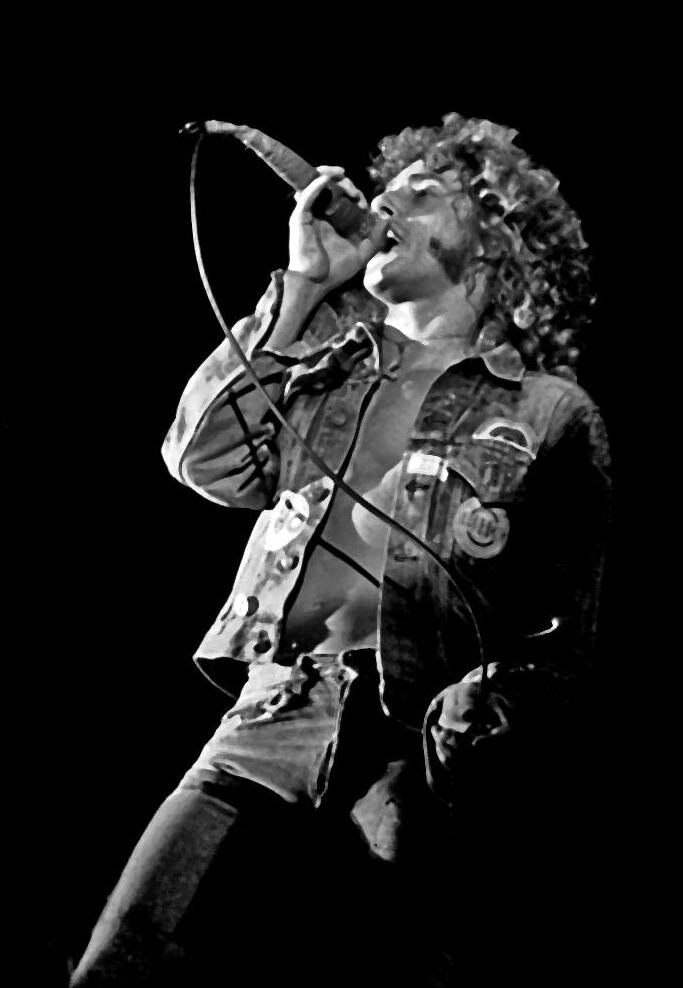
Daltrey attended Victoria Primary School and later Acton County Grammar School, where he crossed paths with future bandmates Pete Townshend and John Entwistle. Showing academic promise, Daltrey excelled in the English state school system and was placed at the top of his class on the eleven-plus examination, which led to his enrollment at Acton County Grammar School.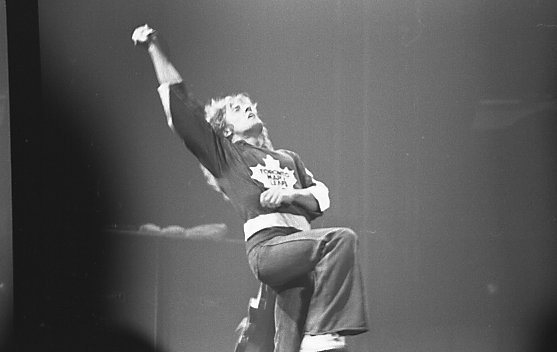
In 1957, Daltrey crafted his first guitar out of a block of wood, resembling a cherry red Stratocaster replica. He joined a skiffle band called the Detours, initially as a lead singer. When his father bought him an Epiphone guitar in 1959, Daltrey transitioned to lead guitarist for the band. However, he soon found himself expelled from school for smoking tobacco, a habit that led to his dismissal. Pete Townshend noted in his autobiography that Daltrey had been a good student until his expulsion.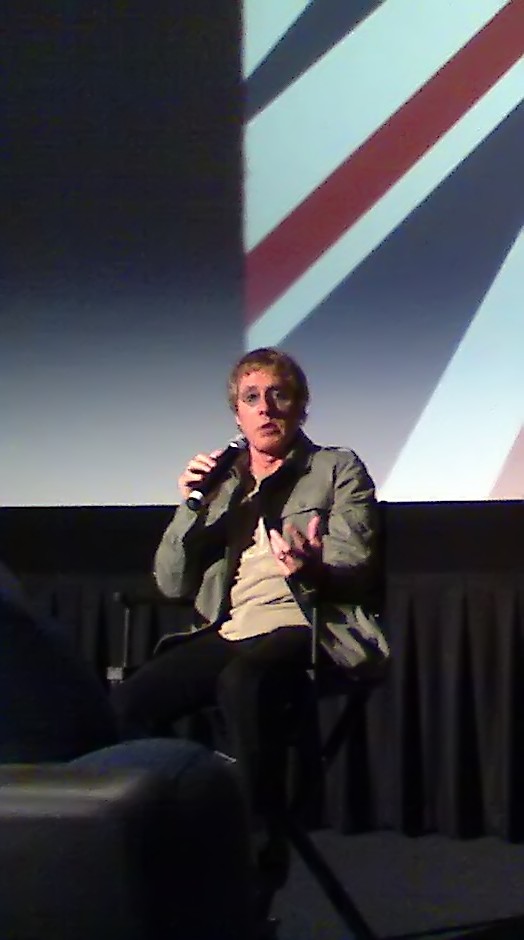
Early on, Daltrey assumed leadership of the band, known for his assertive and sometimes confrontational demeanor. Townshend recalls Daltrey using his fists to enforce discipline when necessary, attributing his tough approach to the neighborhood he grew up in, where conflicts were often resolved through physical confrontation.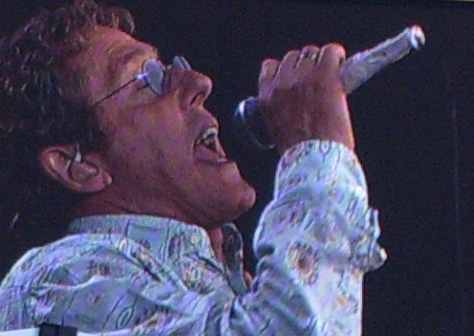
In 1964, faced with the need to change their band name due to another group performing as the Detours, the members discussed alternatives. Townshend proposed "the Hair," while Townshend's roommate Richard Barnes suggested "The Who." Ultimately, Daltrey made the decisive choice, declaring, "It's The Who, innit?"
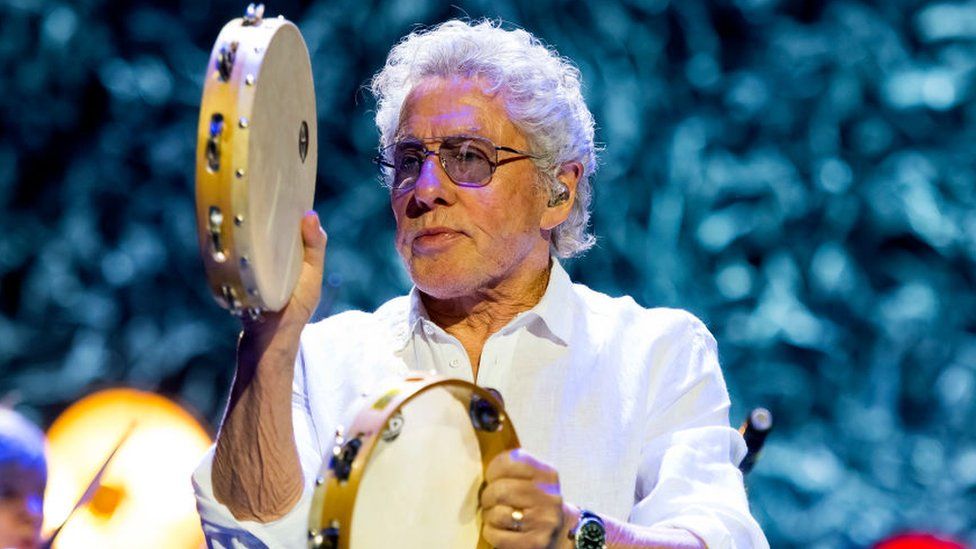
With the band's initial success marked by their hit single "I Can't Explain" and securing a record deal in early 1965, Pete Townshend began to take a more central role in writing original material, leading to a decrease in Roger Daltrey's dominance within the band.
In late 1965, tensions rose within the band when Daltrey physically confronted drummer Keith Moon for supplying illegal drugs to Townshend and Entwistle. This incident led to Daltrey's temporary expulsion from the band. However, he was readmitted a week later under probationary terms, during which he pledged to refrain from violent behavior. Daltrey's commitment to the band stemmed from a realization that losing the Who would mean losing his purpose in life, as he once remarked, "I thought if I lost the band I was dead. If I didn't stick with the Who, I would be a sheet metal worker for the rest of my life."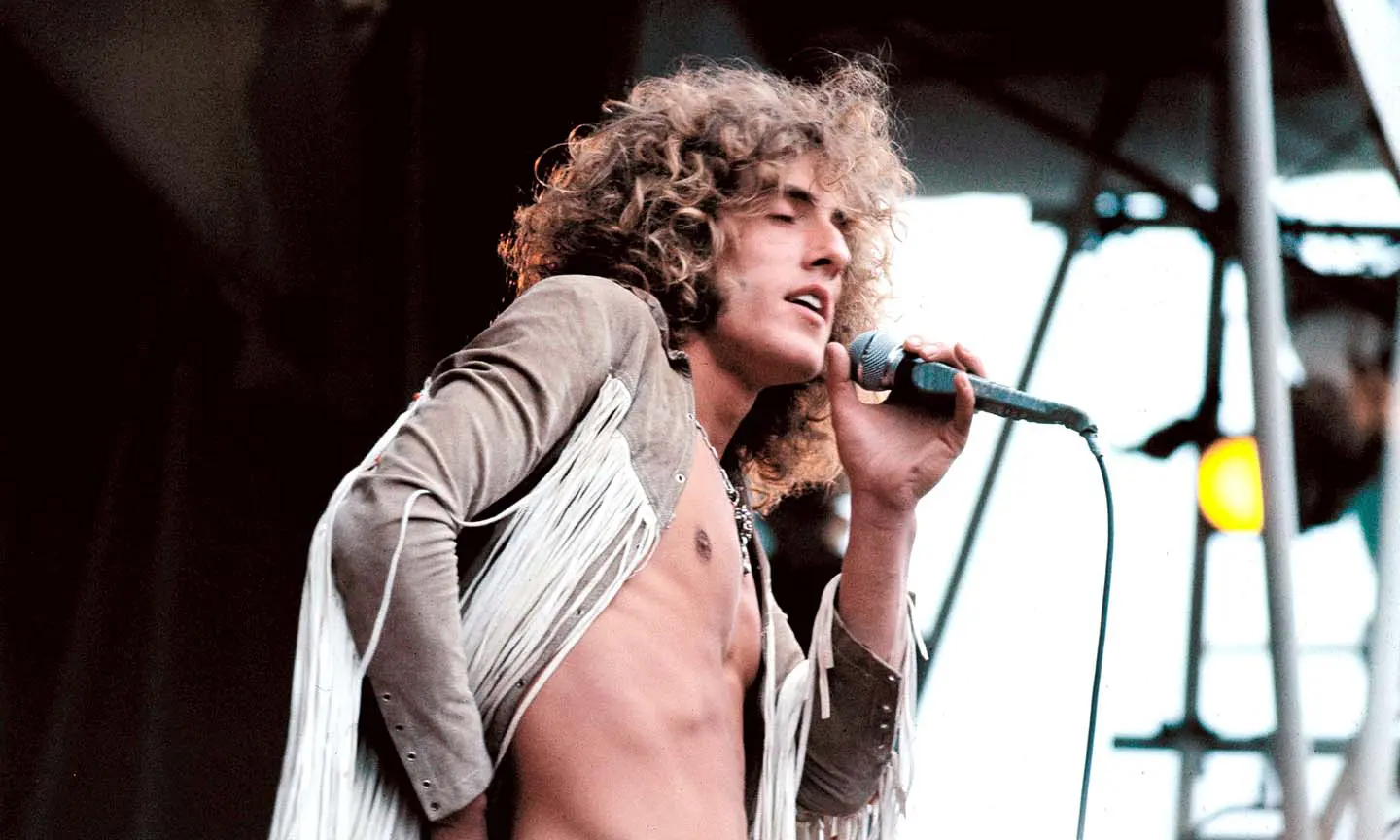
As Townshend emerged as a prolific composer, Daltrey solidified his position as the band's lead vocalist and frontman. The Who's stage performances were characterized by Daltrey's energetic presence, highlighted by his iconic move of swinging the microphone around by its cord. His delivery of Townshend's lyrics, often expressing youthful angst and rebellion, resonated deeply with the spirit of the 1960s. "My Generation," with Daltrey's stuttering expression of frustration and arrogance, became an anthem for the era, encapsulating the sentiments of many young people worldwide.
Moreover, Daltrey's primal scream towards the conclusion of "Won't Get Fooled Again" became an emblematic moment in the history of rock and roll, symbolizing defiance and disillusionment. Through his dynamic stage persona and impassioned vocal delivery, Daltrey played a vital role in shaping the Who's identity and contributing to their enduring impact on music culture.
By 1973, Roger Daltrey was enjoying significant success with his solo endeavors and acting pursuits. While his bandmates focused on recording the music for Quadrophenia, Daltrey took the opportunity to review the Who's financial records. What he discovered was a state of disarray in the band's finances under the management of Kit Lambert and Chris Stamp. Lambert, who was also Pete Townshend's artistic mentor, found himself challenged by Daltrey's scrutiny, reigniting tensions within the group.
During a filming session, tensions between Townshend and Daltrey escalated into a physical altercation. Daltrey claimed that the incident, which involved Townshend hitting him over the head with his guitar and Daltrey responding by knocking Townshend unconscious with a single blow, was blown out of proportion.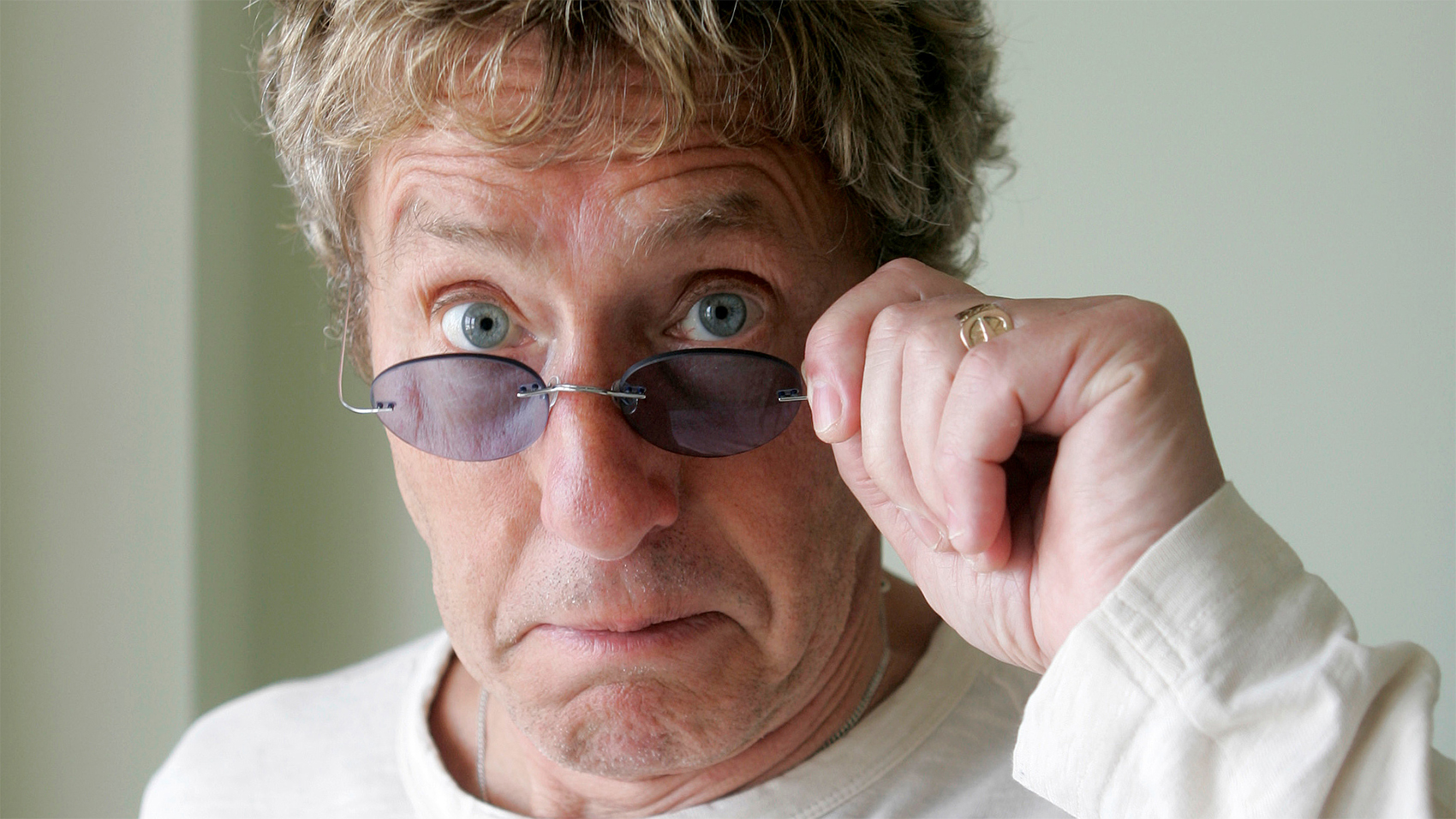
Throughout the Who's significant milestones, such as Tommy, Who's Next, and Quadrophenia, Daltrey emerged as the face and voice of the band, embodying their identity as rebellious figures in an era of societal change. When Ken Russell's adaptation of Tommy was released as a feature film in 1975, Daltrey took on the lead role, earning a nomination for a Golden Globe Award for "Best Acting Debut in a Motion Picture." His portrayal garnered attention, and he graced the cover of Rolling Stone magazine on 10 April 1975.
Following his success with Tommy, Daltrey collaborated with Ken Russell once again, portraying Franz Liszt in the film Lisztomania. He also worked alongside Rick Wakeman on the soundtrack for this project, further showcasing his versatility as an actor and musician.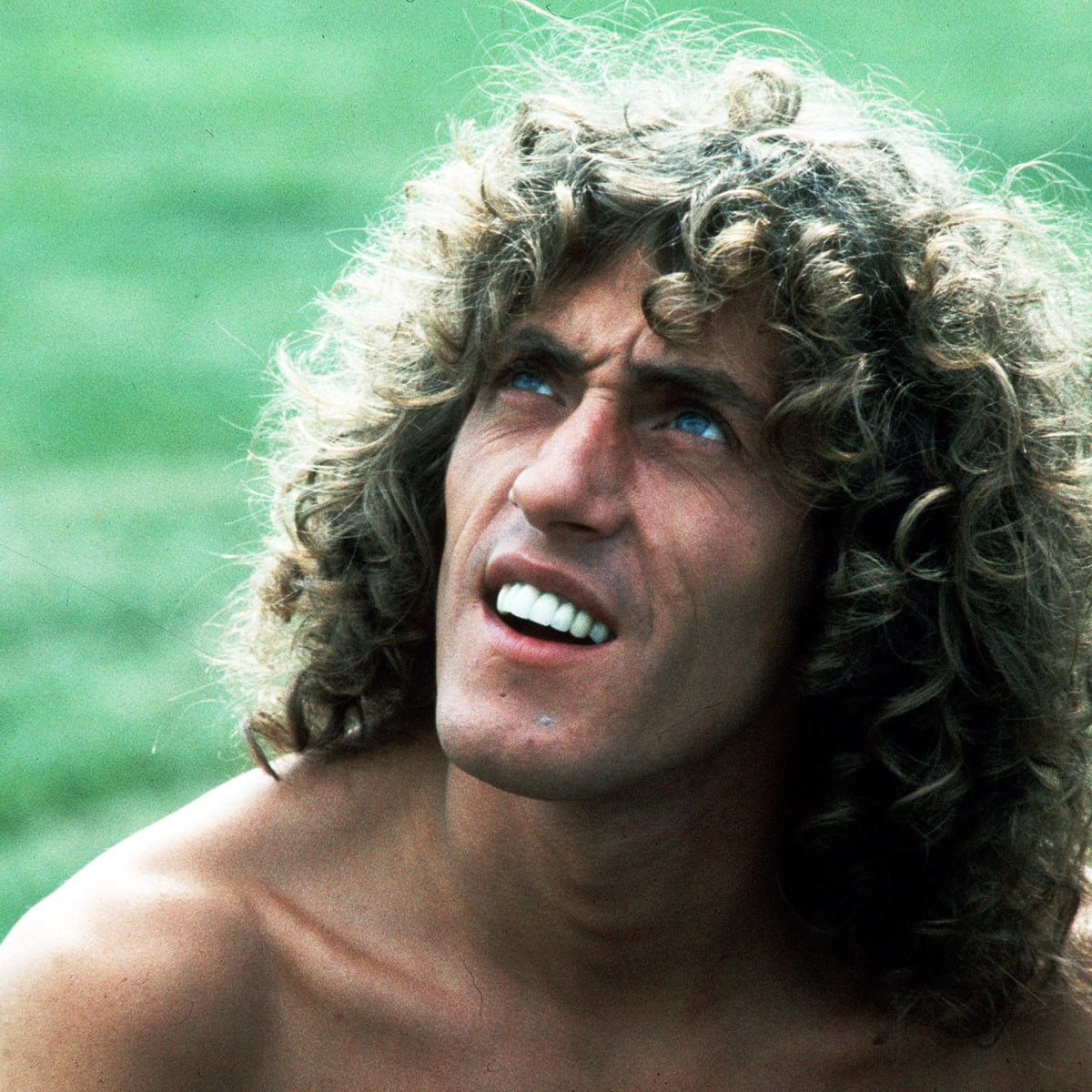
References
- Susan, King (21 May 2010). "Pete Townshend discusses filming 'Tommy'". Los Angeles Times. Retrieved 21 May 2010.
- a b Franklin, Gregory (13 October 2009). "Last Night: Still Singing The Young Man Blues: Roger Daltrey (+Eddie Vedder) @ Showbox Sodo". Seattle Weekly. Archived from the original on 16 December 2009. Retrieved 29 April 2010.
- ^ "BRIT Awards". Everyhit.com. Retrieved 24 November 2010.
- ^ "Grammy Lifetime Achievement Awards". National Academy of Recording Arts and Sciences. 8 February 2009. Archived from the original on 26 August 2010. Retrieved 25 November 2014.
- ^ Montgomery, James (3 April 2007). "Always Second Place? David Bowie, Public Enemy, Kiss Never Topped Charts". MTV. Retrieved 3 November 2012.
- ^ "Rock and Roll Hall of Fame". Rockhall.com. Retrieved 24 November 2010.
- ^ "UK Music Hall of Fame". Everyhit.com. 11 November 2004. Retrieved 24 November 2010.
- ^ Lindsay Weinberg, The Who to receive lifetime achievement award at Spring Sing 2016, Daily Bruin, 10 May 2016
- ^ Leonard, Michael (4 January 2009). "Robert Plant voted rock's greatest voice". MusicRadar. Retrieved 16 June 2019.




















